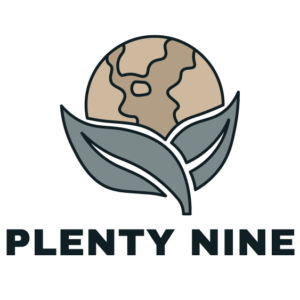Tips for Reducing Water Usage at Home: Practical Strategies for Conservation
Reducing water usage at home is a practical goal that benefits both the environment and household budgets. Many simple actions can lead to significant savings. By making a few small changes in daily routines and household habits, households can cut their water consumption effectively.
There are numerous strategies that individuals can implement to conserve water. From fixing leaks to choosing efficient appliances, every effort counts. With awareness and commitment, families can contribute to a larger movement aimed at protecting this vital resource.
Whether it’s adjusting how they garden, wash clothes, or even brush teeth, each choice can lead to lasting change. Making these adjustments not only helps the environment but also promotes a sustainable lifestyle for future generations.
Understanding Water Usage
Water usage at home can be complex, and knowing how it is consumed is vital. By assessing current consumption and identifying areas for improvement, homeowners can adopt effective strategies to reduce water waste.
Assessing Current Consumption
To understand water usage, it helps to start by reviewing water bills. This gives a clear idea of monthly consumption. Tracking usage over several months can also show patterns, such as increased use during warmer seasons.
Homeowners should check each fixture and appliance. Key areas to examine include:
- Toilets: Older models often use more water per flush.
- Showers and faucets: Measure flow rates with a bucket to see if they meet current standards.
- Washing machines and dishwashers: Note their water efficiency ratings.
Using this information, one can determine their average daily water consumption per person. By breaking it down, identifying specific trends becomes easier.
Identifying Areas for Improvement
After assessing usage, it is important to pinpoint where reductions can happen. Focus on high-use areas first, such as bathrooms and kitchens.
Consider these improvements:
- Install low-flow fixtures: These can reduce water flow without sacrificing pressure.
- Fix leaks promptly: A small drip can waste gallons over time.
- Change habits: Shortening showers and only running full loads can make a significant impact.
Educating family members about water conservation is crucial. Doing simple tasks like turning off the tap while brushing teeth can lead to big savings. By actively managing water usage, they contribute to a more sustainable home environment.
Innovations in Water Conservation
New technologies are making it easier for households to reduce water usage. These innovations not only help in saving water but also in making better use of existing resources.
Smart Meters and Monitors
Smart meters allow homeowners to track their water usage in real-time. This technology helps detect leaks and unusual spikes in water consumption.
With detailed statistics, users can adjust their habits to reduce waste. For example, if a smart meter shows high usage during certain times, homeowners can explore ways to cut back, like delaying laundry or reducing shower times.
Many smart meters can connect to smartphone apps. This connectivity gives users immediate access to their water data. Having this information at their fingertips encourages more mindful water use.
Rainwater Harvesting Systems
Rainwater harvesting systems collect and store rainwater for various domestic uses. This method reduces reliance on municipal water supplies.
Homeowners can install systems to capture rainwater from rooftops. The collected water can be used for irrigation, toilet flushing, and even laundry.
These systems often include filtration to ensure the water is clean enough for non-potable uses. Additionally, installing a rain barrel is a simple way for anyone to start reusing water from rainfall.
Greywater Recycle and Reuse
Greywater recycling involves reusing household water from sinks, showers, and laundry. This method can significantly reduce overall water consumption in homes.
With simple systems installed, greywater can be directed to gardens or lawns. This practice not only conserves fresh water but also helps nourish plants.
It is essential to treat greywater properly to ensure safety. Many states provide guidelines on how to collect and reuse greywater, making it easier for homeowners to implement this practice safely and effectively.
Practical Techniques
Reducing water usage at home can be achieved through simple, practical techniques. Two effective methods are fixing leaks promptly and using water-efficient appliances. These approaches not only conserve water but also lower utility bills.
Fixing Leaks Promptly
Leaks in faucets, toilets, and pipes can waste a lot of water. Even a small drip can add up to gallons of wasted water each day.
Here are steps to fix leaks:
- Identify the Source: Check all fixtures, including under sinks and around toilets.
- Turn Off the Water Supply: To avoid further loss, shut off the water valve.
- Use the Right Tools: A wrench or pliers can help tighten loose parts.
- Replace Damaged Parts: Washers, seals, and hoses often need replacing.
Regular checks can prevent larger issues and save water.
Water-Efficient Appliances
Using water-efficient appliances is a great way to cut down on water use. These devices are designed to use less water while maintaining performance.
Examples include:
- Low-Flow Toilets: These use significantly less water per flush than older models.
- Water-Saving Showerheads: These reduce flow without sacrificing pressure.
Benefits:
- Reduced Water Bills: Less water usage directly leads to cost savings.
- Environmental Impact: Efficient usage helps conserve natural water resources.
Investing in these appliances may have higher upfront costs but offers long-term benefits.
Daily Habits for Water Conservation
Simple changes in daily habits can significantly reduce water usage at home. By focusing on shorter showers, efficient plant watering, and mindful dishwashing and laundry practices, anyone can contribute to water conservation.
Shorter Showers and Baths
Reducing the time spent in the shower can save a lot of water. A typical shower uses about 2.5 gallons per minute. By shortening showers to 5 minutes, a person can save approximately 12.5 gallons of water daily.
Using a water-saving showerhead can also help. These heads reduce flow without sacrificing pressure. Avoiding baths can lead to even greater savings, as filling a bathtub may use up to 70 gallons of water.
Tips for Shorter Showers:
- Set a timer for 5 minutes.
- Listen to music with a set duration.
- Shower with a friend to limit time.
Efficient Watering of Plants
Watering plants wisely is essential for saving water. Early mornings or late afternoons are the best times to water to prevent evaporation. Using drip irrigation or soaker hoses can target roots directly, minimizing waste.
Mulching around plants retains moisture in the soil, reducing the frequency of watering. Native plants often require less water as they are adapted to the local climate.
Watering Tips:
- Check soil moisture before watering.
- Use rain barrels to collect rainwater.
- Group plants with similar water needs together.
Mindful Dishwashing and Laundry
Dishwashing and laundry are areas where significant water savings can occur. For dishwashing, filling the sink or a basin instead of letting the tap run can save gallons of water. Using a dishwasher can be more efficient, especially if run with a full load.
When it comes to laundry, using the washing machine’s settings correctly can save water. The machine should only be filled with full loads, and selecting the appropriate cycle length can also help.
Dishwashing and Laundry Tips:
- Rinse dishes in a basin rather than under running water.
- Consider energy-efficient appliances.
- Wash only full loads of laundry.
Landscape and Garden Management
Managing landscapes and gardens effectively can significantly reduce water usage at home. By selecting the right plants and ensuring proper irrigation techniques, homeowners can conserve water while maintaining attractive outdoor spaces.
Drought-Tolerant Landscaping
Drought-tolerant landscaping focuses on choosing plants that require less water. Native plants are often the best choice as they adapt well to local climates and require minimal maintenance.
- Examples of Drought-Tolerant Plants:
- Lavender
- Sedum
- Agave
Using these plants helps in reducing the need for frequent watering. Homeowners should group plants with similar watering needs together. This method, known as hydrozoning, can enhance water efficiency in the garden.
Soil Moisture Conservation Techniques
Improving soil quality is crucial for conserving moisture. When soil retains water better, less overall watering is needed.
- Mulching: Adding a layer of organic mulch, such as bark or straw, helps prevent evaporation.
- Soil Amendments: Incorporating compost or other organic matter can enhance soil structure and water retention.
Using these techniques will not only save water but also promote healthier plants. Regularly checking the soil moisture before watering can further ensure that water is used efficiently.
Irrigation System Improvements
Upgrading irrigation systems can lead to significant water savings. Traditional sprinklers may waste water by overspraying or running during windy conditions.
- Drip Irrigation: This system delivers water directly to the roots, minimizing evaporation and runoff.
- Smart Irrigation Controllers: These systems adjust watering schedules based on weather conditions, ensuring that gardens receive only what they need.
Regular maintenance of irrigation systems is also essential. Checking for leaks and ensuring even distribution can help maintain an efficient watering system.
Frequently Asked Questions
Water conservation at home can be achieved through practical steps and effective strategies. Understanding common methods can help individuals make a significant impact on their water usage.
What are some simple steps to take for saving water in daily life?
People can save water by taking shorter showers and fixing leaks promptly. Using a broom instead of a hose for cleaning driveways and sidewalks also helps. Installing low-flow showerheads and faucet aerators can reduce water flow without sacrificing performance.
Which methods are most effective for conserving water in residential areas?
Effective methods for conserving water include rainwater harvesting and using drip irrigation for gardens. Planting drought-resistant plants can also minimize the need for frequent watering. Additionally, utilizing greywater systems can recycle water from sinks and showers for irrigation.
How can individuals save water and also reduce their utility bills?
Individuals can save water and lower utility bills by adjusting their behavior, such as turning off taps while brushing teeth. Running dishwashers and washing machines only with full loads is another effective way. Regular maintenance on appliances ensures they operate efficiently and do not waste water.
What are the top water conservation strategies for students at home and school?
Students can contribute to water conservation by being mindful of their water usage. Simple actions like turning off taps while washing hands and reporting leaks can make a difference. Schools can implement educational programs to raise awareness about water conservation techniques.
What are three indoor water conservation tips that every homeowner should know?
Homeowners should be aware of the benefits of installing dual-flush toilets, which use less water for liquid waste. They can also check and fix leaking faucets, which can waste much water over time. Using appliances smartly, such as setting laundry machines to the appropriate water levels, is important too.
Can you list ten easy ways to minimize water usage in domestic chores?
- Take shorter showers.
- Turn off the tap while brushing teeth.
- Fix leaks quickly.
- Use mulch in gardens to retain moisture.
- Wash full loads of laundry.
- Use a dishwasher instead of hand washing.
- Collect rainwater for plants.
- Sweep instead of using a hose to clean outdoor areas.
- Install low-flow fixtures.
- Limit lawn watering to early mornings or late evenings.





